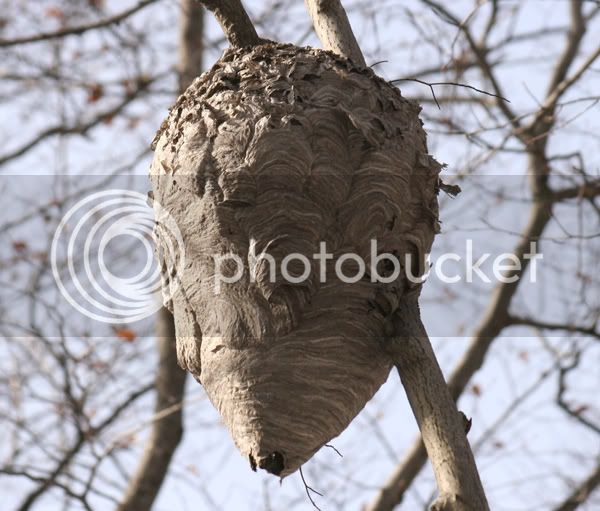forestgnome
New member

What creatures call this home? It's attached to a beech tree branch, near the Swift River, just east of Lilly Pond.
Any info appreciated.
happy trails


From DaveHiker's Wikipedia link:Rick said:Yes, Bald Faced Hornets, very aggressive. Nests generally get larger and more prominent in late summer. Same family as yellow-jackets, people call them wasps, but they are really hornets. Kind of a different Genus (IIRC).
This says they are a wasp, like the yellowjacket.Dolichovespula maculata is a North American insect which, despite commonly being called the bald-faced hornet (or white-faced hornet), is not a true hornet at all. It belongs to a genus of wasps called yellowjackets in North America, and is more distantly related to true hornets like the Asian giant hornet or European hornet, but the term "hornet" is often used colloquially to refer to any vespine with an exposed aerial nest.
Yes, mowing one's lawn will often reveal these voids in the ground. They do hurt when you get stung a bunch of times.Rick said:Typically YJs nest in the ground or in wall voids, whereas the BFH will almost always build the same style nest on a branch
Enter your email address to join: